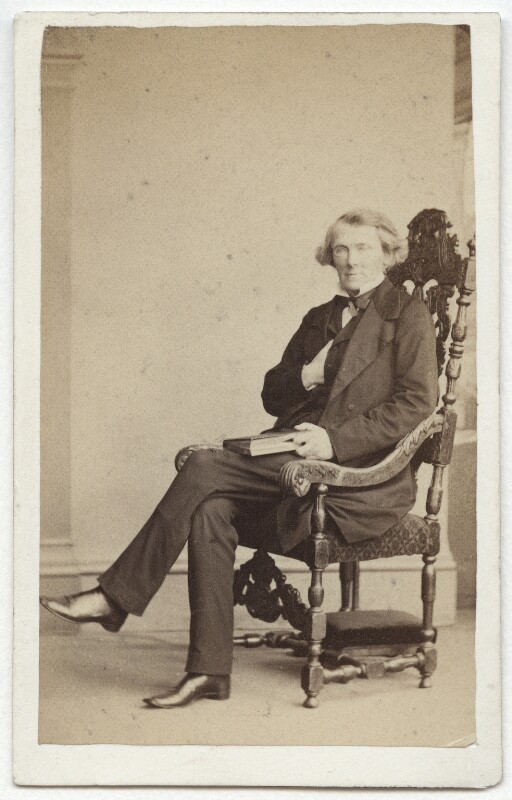|
Agnoiology
Agnoiology (from the Greek ἀγνοέω, meaning ignorance) is the theoretical study of the quality and conditions of ignorance, and in particular of what can truly be considered "unknowable" (as distinct from "unknown"). The term was coined by James Frederick Ferrier, in his ''Institutes of Metaphysic'' (1854), as a foil to the theory of knowledge, or epistemology Epistemology (; ), or the theory of knowledge, is the branch of philosophy concerned with knowledge. Epistemology is considered a major subfield of philosophy, along with other major subfields such as ethics, logic, and metaphysics. Episte ....Roy Dilley, "The Construction of Ethnographic Knowledge in a Colonial Context", in ''Ways of Knowing: Anthropological Approaches to Crafting Experience and Knowledge'', edited by Mark Harris (New York and Oxford, 2007), pp. 139-140. References {{epistemology Epistemology ... [...More Info...] [...Related Items...] OR: [Wikipedia] [Google] [Baidu] |
James Frederick Ferrier
James Frederick Ferrier (16 June 1808 – 11 June 1864) was a Scottish metaphysical writer and philosopher. He introduced the word ''epistemology'' in philosophical English, as well as coining agnoiology for the study of ignorance. Education and early writings Ferrier was born at 15 Heriot Row in Edinburgh, the son of John Ferrier, writer to the signet. He was educated at the Royal High School, the University of Edinburgh and Magdalen College, Oxford, and subsequently, his metaphysical tastes having been fostered by his intimate friend, Sir William Hamilton, spent some time at Heidelberg studying German philosophy. In 1840 he is listed as an advocate living at 14 Carlton Street in the Stockbridge area of Edinburgh. In 1842 he was appointed professor of civil history at Edinburgh University, still living at Carlton Street. In 1845 professor of moral philosophy and political economy at the University of St Andrews. He was twice an unsuccessful candidate for chairs in Edinbu ... [...More Info...] [...Related Items...] OR: [Wikipedia] [Google] [Baidu] |
The Cambridge Dictionary Of Philosophy
''The Cambridge Dictionary of Philosophy'' (1995; second edition 1999; third edition 2015) is a dictionary of philosophy published by Cambridge University Press and edited by the philosopher Robert Audi Robert N. Audi (born November 1941) is an American philosopher whose major work has focused on epistemology, ethics (especially on ethical intuitionism), rationality and the theory of action. He is O'Brien Professor of Philosophy at the University .... There are 28 members on the Board of Editorial Advisors and 440 contributors. Publication history ''The Cambridge Dictionary of Philosophy'' was first published in 1995 by Cambridge University Press. A second edition followed in 1999, and a third edition in 2015. References Bibliography ;Books * External links More information at the Cambridge University Press website 1995 non-fiction books Books by Robert Audi Cambridge University Press books Dictionaries of philosophy Encyclopedias of philosophy English-language book ... [...More Info...] [...Related Items...] OR: [Wikipedia] [Google] [Baidu] |
Cambridge University Press
Cambridge University Press is the university press of the University of Cambridge. Granted letters patent by Henry VIII of England, King Henry VIII in 1534, it is the oldest university press A university press is an academic publishing house specializing in monographs and scholarly journals. Most are nonprofit organizations and an integral component of a large research university. They publish work that has been reviewed by schola ... in the world. It is also the King's Printer. Cambridge University Press is a department of the University of Cambridge and is both an academic and educational publisher. It became part of Cambridge University Press & Assessment, following a merger with Cambridge Assessment in 2021. With a global sales presence, publishing hubs, and offices in more than 40 Country, countries, it publishes over 50,000 titles by authors from over 100 countries. Its publishing includes more than 380 academic journals, monographs, reference works, school and uni ... [...More Info...] [...Related Items...] OR: [Wikipedia] [Google] [Baidu] |
Encyclopaedia Britannica
An encyclopedia (American English) or encyclopædia (British English) is a reference work or compendium providing summaries of knowledge either general or special to a particular field or discipline. Encyclopedias are divided into articles or entries that are arranged alphabetically by article name or by thematic categories, or else are hyperlinked and searchable. Encyclopedia entries are longer and more detailed than those in most dictionaries. Generally speaking, encyclopedia articles focus on '' factual information'' concerning the subject named in the article's title; this is unlike dictionary entries, which focus on linguistic information about words, such as their etymology, meaning, pronunciation, use, and grammatical forms.Béjoint, Henri (2000)''Modern Lexicography'', pp. 30–31. Oxford University Press. Encyclopedias have existed for around 2,000 years and have evolved considerably during that time as regards language (written in a major international or a verna ... [...More Info...] [...Related Items...] OR: [Wikipedia] [Google] [Baidu] |
Epistemology
Epistemology (; ), or the theory of knowledge, is the branch of philosophy concerned with knowledge. Epistemology is considered a major subfield of philosophy, along with other major subfields such as ethics, logic, and metaphysics. Epistemologists study the nature, origin, and scope of knowledge, epistemic justification, the rationality of belief, and various related issues. Debates in epistemology are generally clustered around four core areas: # The philosophical analysis of the nature of knowledge and the conditions required for a belief to constitute knowledge, such as truth and justification # Potential sources of knowledge and justified belief, such as perception, reason, memory, and testimony # The structure of a body of knowledge or justified belief, including whether all justified beliefs must be derived from justified foundational beliefs or whether justification requires only a coherent set of beliefs # Philosophical skepticism, which questions the possibili ... [...More Info...] [...Related Items...] OR: [Wikipedia] [Google] [Baidu] |



